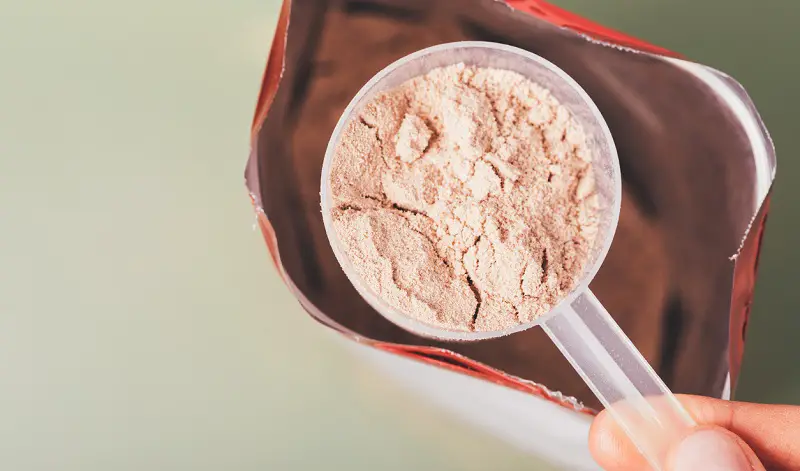Wondering if whey is halal? You’re not alone! Whey is a common ingredient found in a wide range of foods and supplements. But when it comes to following a halal diet, it’s crucial to know where your ingredients come from. The halal status of whey depends on how it’s processed and what it’s derived from. So, let’s dive into the details and figure out, “Is whey halal?” Whether you’re checking labels at the grocery store or picking out supplements, understanding the halal status of whey can help you make choices that align with your dietary needs. Join us as we explore this topic together!
What is Whey?
Whey protein is well-known to sports fans, particularly those who aspire to have bodies shaped like bodybuilding competitors. Since whey protein enhances athletes’ physical condition and training, it is highly popular among sportsmen. Because they are inherently competitive, driven to succeed, and increasingly aware of the food choices that might impact performance, athletes choose for ergogenic nutrition.
There is little scientific proof of nutritional ergogenics, but current research on whey protein points to certain advantages, such as boosting immune function, fostering a speedier recovery, and improving the effects of exercise. Whey protein is consumed by sports enthusiasts and bodybuilders to increase muscle growth. But, whey protein can also be consumed by regular people to fulfill their daily protein requirements; they are not limited to athletes.
You might be surprised to hear that not all whey protein powder is halal. Although hearing that might shock you, it’s true,
Can whey protein be haram?
Rennet, a key enzyme used in cheese-making, is derived from the stomach linings of young ruminant animals, such as calves, lambs, or goats. It plays a crucial role in coagulating milk, helping separate it into solid curds and liquid whey. This process is essential for producing cheese, with the whey byproduct often used in various food products. Rennet’s animal origin is a significant consideration for dietary laws, including halal and vegetarian guidelines.

Plant-based rennet, an alternative to animal-derived rennet, is extracted from certain types of vegetables, fruits, and fungi. Common sources include the thistle flower (Cynara cardunculus), fig leaves, nettles, and microbial enzymes from fungi or yeast. These plant and microbial sources contain coagulating properties similar to those found in animal rennet, making them suitable for vegetarian cheese production and compatible with specific dietary requirements, including halal, when processed appropriately
Research indicates that whey can be considered halal if it’s derived using rennet from animals slaughtered according to halal practices. Similarly, plant-based rennet, sourced from various vegetables and fungi, is also deemed halal. This means for whey to meet halal dietary standards, the origin and method of obtaining the rennet are crucial. Whether it’s animal-based and follows halal slaughtering guidelines or it’s derived from acceptable plant sources, both pathways ensure the whey produced aligns with halal dietary laws, catering to the needs of those observing these guidelines..
Components of Whey protein and ingredients used
When it’s further processed into whey protein products like powders, additional ingredients may be added depending on the type and purpose of the product. Here’s a closer look at the ingredients commonly found in whey and whey protein supplements:
Basic Components of Whey:
- Proteins: The main attraction of whey, including beta-lactoglobulin, alpha-lactalbumin, bovine serum albumin, and immunoglobins, which are beneficial for muscle repair, growth, and immune function.
- Lactose: A sugar found in milk that some people may have difficulty digesting.
- Minerals: Including calcium, phosphorus, magnesium, and potassium, important for bone health, muscle function, and various metabolic processes.
- Vitamins: Such as B-vitamins, which are involved in energy metabolism.
- Trace Elements: Small amounts of other nutrients beneficial to health.
Added Ingredients in Whey Protein Products:
- Flavorings: Natural or artificial flavors are added to improve taste, such as vanilla, chocolate, or strawberry.
- Sweeteners: To enhance sweetness, products may contain sugar, or low-calorie sweeteners like stevia, sucralose, or aspartame, especially in “light” or “diet” versions.
- Thickeners and Stabilizers: Ingredients like xanthan gum, guar gum, or lecithin (often from soy) are added to improve texture and mixability.
- Colorants: In some products, natural or artificial colorings might be added to achieve a certain look.
- Preservatives: To extend shelf life, some whey protein products may contain preservatives.
- Added Nutrients: Some products are fortified with additional vitamins, minerals, or other supplements like creatine, BCAAs (branched-chain amino acids), or fiber to enhance nutritional value or performance benefits.
Different types of whey circulating in the market
Carbohydrates and fat content are low in Whey Protein Concentrate (WPC). It tastes the best and is composed of about 70–80% protein, some lactose, and fat.
Whey Protein Isolate (WPI) undergoes additional processing to remove all lactose and fat. It lacks several vital elements in WPC and has 90% or more protein, less lactose, and fat.
Whey protein hydrolysate (WPH) facilitates faster absorption due to its partial digestion. In comparison to whey protein isolate, WPH induces a 28-43% higher increase in insulin levels.
Also Read: Is Vanilla Extract Halal?
Learning what is Halal Certified
Being halal certified means that a product, or the facilities used to produce it, have been inspected and approved by a credible Islamic organization. This certification ensures the product meets strict Islamic dietary laws, which include using permissible ingredients and following specific processing methods. It confirms that the product does not contain any haram (forbidden) components like alcohol or pork and that any animal ingredients come from animals slaughtered in the prescribed Islamic way. Halal certification helps Muslim consumers identify products they can consume according to their religious beliefs.
Can Whey be halal?
The market for halal whey protein has expanded within the past few years. This is because there are more and more Muslim bodybuilders and Islamic fitness influencers in the community. Consequently, some businesses have started to manufacture 100% certified halal whey protein.
Many organizations certify halal goods, including The World Halal Trust Group (VMS), which specializes in vitamins, minerals, and supplements, and HMC (UK), which focuses mainly on meat products.
Protein obtained from milk that has been pepsinized is not halal.
There are two different outcomes when rennet is used to ferment milk:
If the rennet is made from an animal that is slain according to Islamic law, the resulting whey protein is halal.
It is prohibited to use rennet derived from dead animals that were not killed according to Islamic law.
FAQs
Is whey in cheese halal?
The problematic nature of whey stems from the rennet employed to curdle the milk, which is essential for the production of whey and cheese. If the rennet used is halal, sourced from halal animals, vegetables, or most microbial sources, then both the whey and cheese are considered halal. However, if the rennet used is not halal, then the whey and cheese cannot be deemed halal.
Is Gold Standard 100% whey halal?
Optimum Nutrition Gold Standard 100% Whey is not Halal-certified.
Does whey protein powder have pork?
Since whey is a by-product of the cheese-making business, pure whey protein powder is free of any pork products. However, commercially available whey protein powders may contain additions that come from pork, but this is extremely unusual.
Does whey protein contain alcohol?
Alcohol is not usually a direct constituent in whey protein itself. However, if alcohol is utilized as a carrier for flavors or other components during the manufacturing process, it may be present in very minute concentrations in some whey protein products. This is especially prevalent in flavored whey protein products where the natural or artificial flavoring systems may contain alcohol. It should be noted that, if alcohol is present at all, it is often quite small and may evaporate or drastically reduce during the production process.
Conclusion
Whey is derived from cows, however, milk and its by-products can turn into haram foods if they are combined with other components that have a key halal point. For this reason, one must be cautious when purchasing whey, a halal product. Customers need to exercise caution when selecting whey products, particularly if they originate from regions like China, Europe, or America where stringent halal regulations are not in place. It can be difficult to determine whether whey protein is halal because the ingredients list does not tell you what was added to curdle the milk. The best thing to do is look for labels that are halal-certified.

